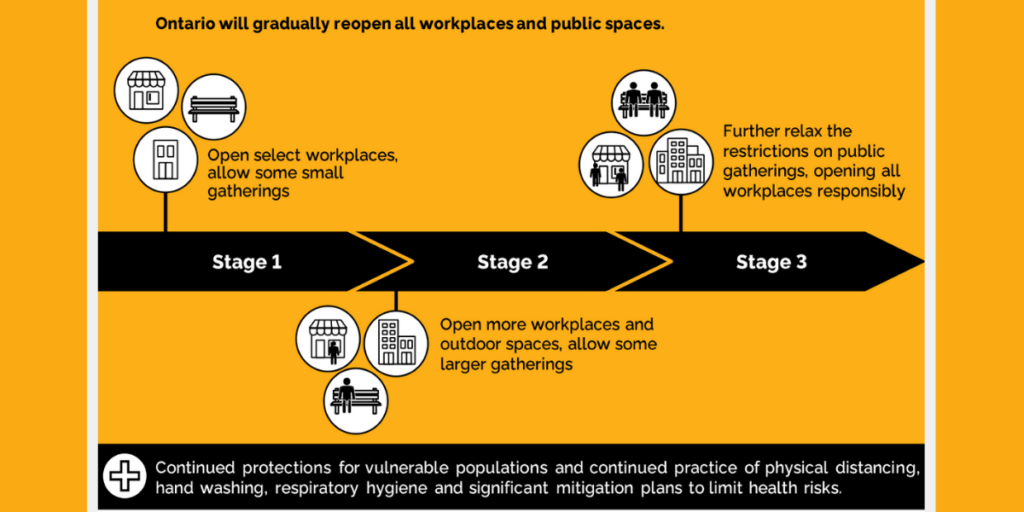Ontario Listening to Business Owners as Reopening Begins
A new website launched by the Province of Ontario, Canada, is designed to help businesses overcome the unique challenges created by this pandemic. Businesses are encouraged to submit any potential roadblocks they are facing, or learning how to continue operations while implementing social distancing.
Ontario Premier Ford in a statement said, “As [a] government, we must be prepared to work with businesses and show some flexibility in helping them to overcome challenges they may have never faced before.” The provincial government is hoping this website will help them to hear the issues small businesses in Ontario are facing, so they can help them adapt in these changing times.
Some steps already taken to help small businesses include: providing $10 billion in provincial tax deferrals, providing more than $900 million in urgent relief to small businesses, and providing $50 million to help manufacturers and distilleries retool, so they can produce health-related products and supplies. The province has also been permitting 24-hour construction for critical infrastructure, 24-hour deliveries in every municipality across the province to help grocery stores and pharmacies keep shelves stocked, and allowing restaurants and bars to sell alcohol with food takeout and delivery.
On Monday, following advice from Ontario’s Chief Medical Officer of Health, certain businesses and workplaces may reopen as long as they comply with strict public health measures and operate safely. Additional details are available on the Province of Ontario’s website <HERE>
To visit the website, Google COVID-19 Tackling the Barriers or click <HERE>.






